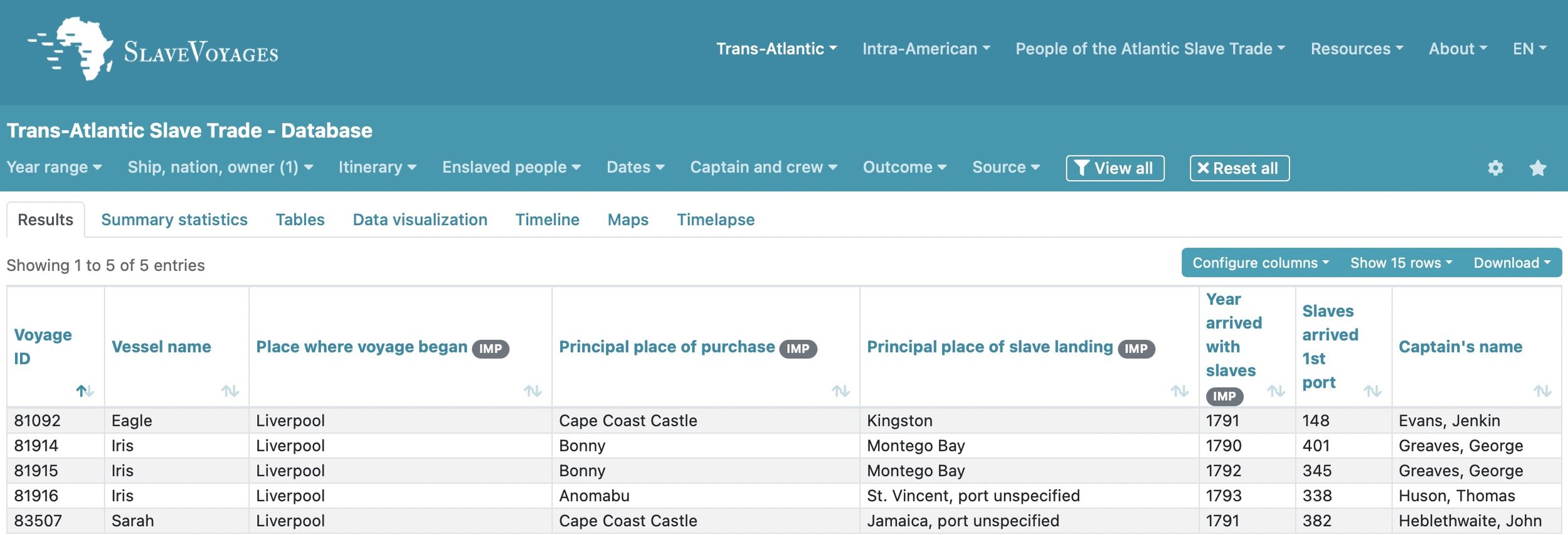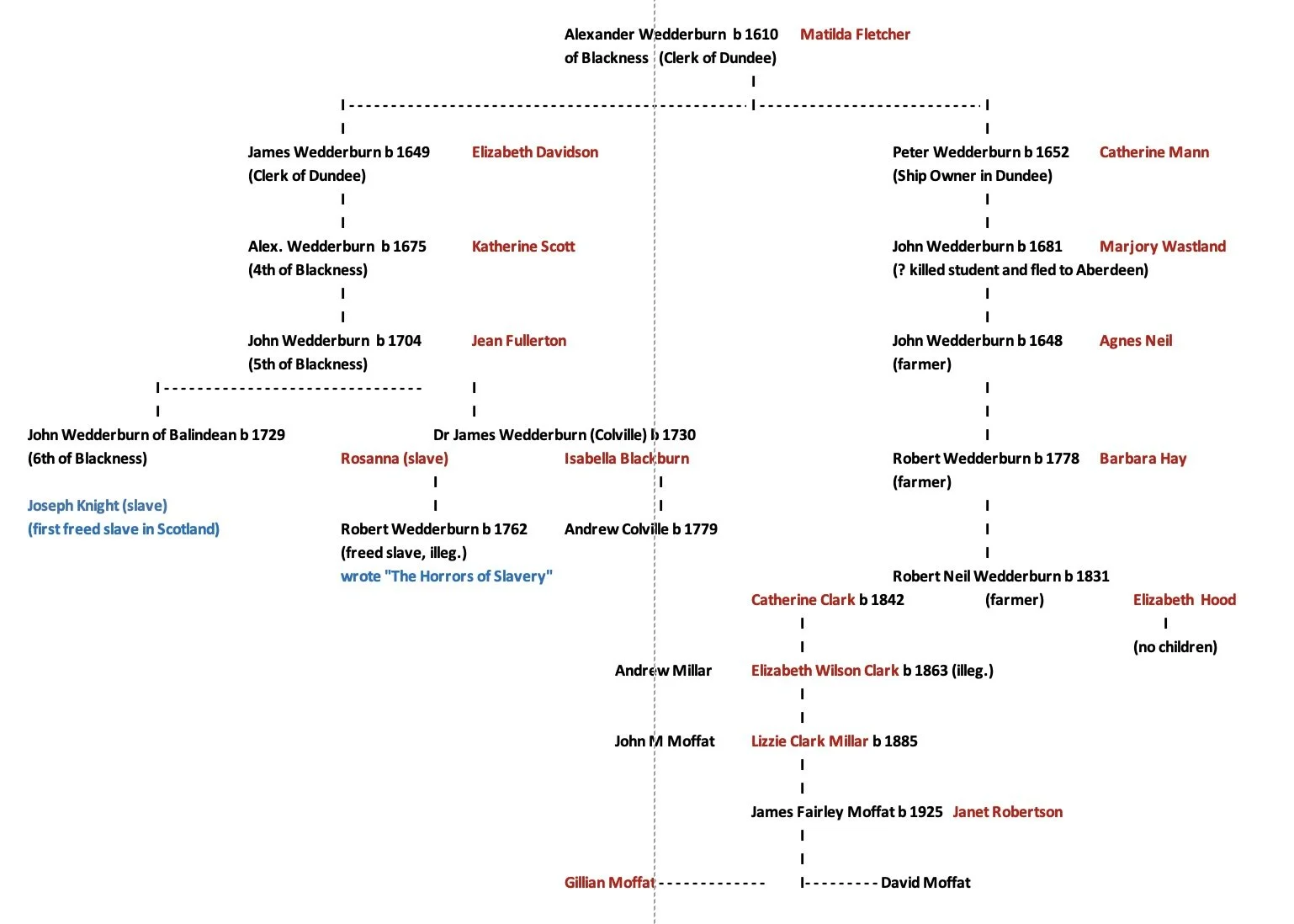Connection to Slavery 2
A sugar plantation in Jamaica
The Wedderburn family has several connections to slavery. The Wedderburns were prominent leaders in Dundee from the 1500s with several generations in the role of Town Clerks and burgesses. Many Scots went to the West Indies to make their fortune in the mid 1700’s and the Wedderburns were part of a close network of families and friends who bought land in Jamaica. They prospered from the sale of sugar, rum, and tobacco, and from the free labor of slaves brought from Africa on British ships.
As well as ownership of plantations, the Wedderburns were involved in the mercantile and legal aspects of slavery through Webster, Wedderburn & Co. in London.
Five slave ships owned by James Wedderburn (unsure which one)
Three ships owned by a James Wedderburn transported a total of 1614 slaves from Africa to Jamaica between 1791 and 1793. I am trying to figure out which James Wedderburn was the ship owner.
Apologies for the tiny script but this is a tree that shows how our family is linked to two infamous slaveowners in Jamaica.
Our great great great great great great great grandfather was Alexander Wedderburn of Blackness b 1610 who was the Town Clerk of Dundee.
He had several sons (only two are shown here) but one of his sons is the ancestor of John Wedderburn b 1704 who was hanged for treason in London in 1745 after the Battle of Culloden for being a Jacobite. His sons (he had four, only two are shown here) fled to Jamaica and bought slave plantations.
John Wedderburn of Balindean b 1729 became famous as when he returned from Jamaica in 1769 he brought with him a young slave boy, Joseph Knight. Joseph married a servant and wanted to live with his family but Wedderburn refused.
Joseph brought suit in the Perthshire court asking for his freedom (which was by then established in England but not Scotland). Knight v Wedderburn 1774
Wedderburn was outraged and appealed to a higher court in 1777. They determined by eight to four “That the state of slavery is not recognised by the laws of this kingdom, and is inconsistent with the principles thereof: and found that the regulations in Jamaica, concerning slaves, do not extend to this kingdom; and repelled the defender's claim to perpetual service."
Joseph Knight became the first slave to be freed in Scotland.
Meanwhile John Wedderburn’s brother James was involved in his own drama.
James Wedderburn b 1730 had a relationship with a female slave named Rosanna on his Jamaican estate and had several children with her, including Robert Wedderburn b 1762.
James freed his son and Robert joined the British Navy and went to England where he became a tailor and later a Unitarian preacher. In 1824 he wrote a book “The Horrors of Slavery” that described his life in Jamaica. The book became an abolitionist tract and was widely read in Britain.
Robert Wedderburn b 1862 in Jamaica
published in 1824
The Wedderburn families in Perthshire and Angus were involved as merchants for the products made on their slave plantations through their firm Webster, Wedderburn & Co. in Leadenhall Street, London. This closed in 1830 when ownership of slaves was outlawed in Britain. These families owned plantations near each other in Westmoreland Parish in Jamaica. They intermarried with other slave-owning families and acted as trustees and attorneys for each other.
Wedderburn tree showing 7 members of Webster, Wedderburn & Co.
(the only non-Wedderburn partner was an Alexander Seton)
See the Centre for the Studies of British Slavery at University College, London for more information.






